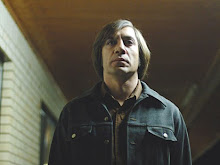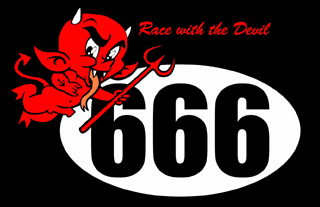
Portishead – Third
The former trip-hop act returns with a (torture) chamber-pop classic.
April 3, 2008 - Contemporary electronic music may not have many indisputable classics, but Portishead's debut Dummy is one of them. As the poetic, feminine counterpart to Nine Inch Nails' The Downward Spiral, Dummy both captured a moment in the zeitgeist and defined it, bridging the gap between Trent Reznor's edgy industrial pop and the then-emerging electronic aesthetic that was slowly infiltrating rock & roll. While both movements would eventually distill themselves into less resonant, more commercially accessible forms, Portishead willfully lingered on the fringes of mainstream success, releasing just one more album of original material before quietly disbanding to pursue solo projects or simply retreat from public life.
Eleven years after the release of their self-titled sophomore album, Portishead returns with Third, a disc which acknowledges the group's gothic origins but thankfully does not stay beholden to them. Packed with songs that will both satisfy longtime fans and draw in plenty of new ones, Third is a remarkably vivid work that sustains the group's legacy and offers an overdue chapter in their subtle musical development.
The album opens with a recording of a man speaking in Portuguese, and whether the sample serves to reference our collective cultural paranoia or suggest that it's unnecessary, it creates an instantly claustrophobic and haunting mood that informs us Portishead is no cheerier ten-plus years on than it was in 1997. While a snakelike bassline reminds one immediately of past hits, however, the accompanying drum pattern is more aggressive and just literally faster, indicating that producer Geoff Barrow has expanded his repertoire beyond the realm of glacial hip-hop beats and slowed Lalo Schifrin samples. The song is called "Silence," and it's a doozy of an opener, reflecting a stronger rock influence over Barrow's classically melancholy arrangements while singer Beth Gibbons cements the disparate elements with her bruised, elegant lyricism.
Amazingly, the rest of the disc is no mere nostalgia trip, even if many of the parts of the whole are too distinctive to be a product of anyone else's creativity. At eleven tracks, Third is as modest an opus as its predecessors, but if it were possible, Barrow and Gibbons have focused their talents even more than before, creating a collection of tunes that express gorgeously direct ideas via achingly beautiful lyrics and moody, evocative instrumentals. "Plastic" probably sounds the most like a classic Portishead tune, featuring much of the same Schifrin-influenced guitar twang as Barrow builds a bed of percussion that more closely resembles a collection of spinning plates (or perhaps turntables?) than any conventional arrangement. As each element slowly spins away from the overall piece, Barrow dials it back in just as it teeters on the brink of musical disaster, creating a tangled tapestry of polyrhythms through which Gibbons' voice navigates like a beacon of light.
Other standouts on the disc include "Nylon Smile," where pinprick guitar sounds give way to Gibbons' most honest (and desperate) confession of love to date; "We Carry On," a seeming tribute to electronic trailblazers like the Silver Apples with its propulsive, oscillating percussion and rock-influenced ambient textures; "Deep Water," where Gibbons timidly sings to the pluck of a ukulele while a sad chorus of backup singers echoes her lyrics; the default single and early candidate for beat of the year "Machine Gun," which assembles itself from the whole cloth of some mysterious machine-press breakbeats, the angelic reverb of Gibbons' voice and Barrow's dexterous knob-twiddling; and "Magic Doors," perhaps the funkiest track Portishead ever recorded – at least until Barrow brings in the buried sound of an orchestra and a sample of some free-jazz saxophone.
Ultimately, Third is not a record that will change one's opinion of Portishead, mostly because the band doesn't seem interested in changing them; as far back as Dummy, winning fans and influencing people always seemed less important than carving out a singular niche (torture-chamber pop) and exploring the outer limits of that space. At the same time, it remains to be seen how well this disc will be received by contemporary fans of electronic music, since the tide has largely turned toward uptempo, upbeat and more aggressively synthetic sounds. Perhaps too artsy for the current industrial or alternative crowd but too downbeat for dancefloor addicts, reintroducing Portishead will no doubt prove a tough sell in today's market. But then again, Barrow, Gibbons and co. don't seem especially concerned about much more than their own music, which means that commercial or no, Third is indeed another classic, even if it only qualifies as such to them.







No comments:
Post a Comment